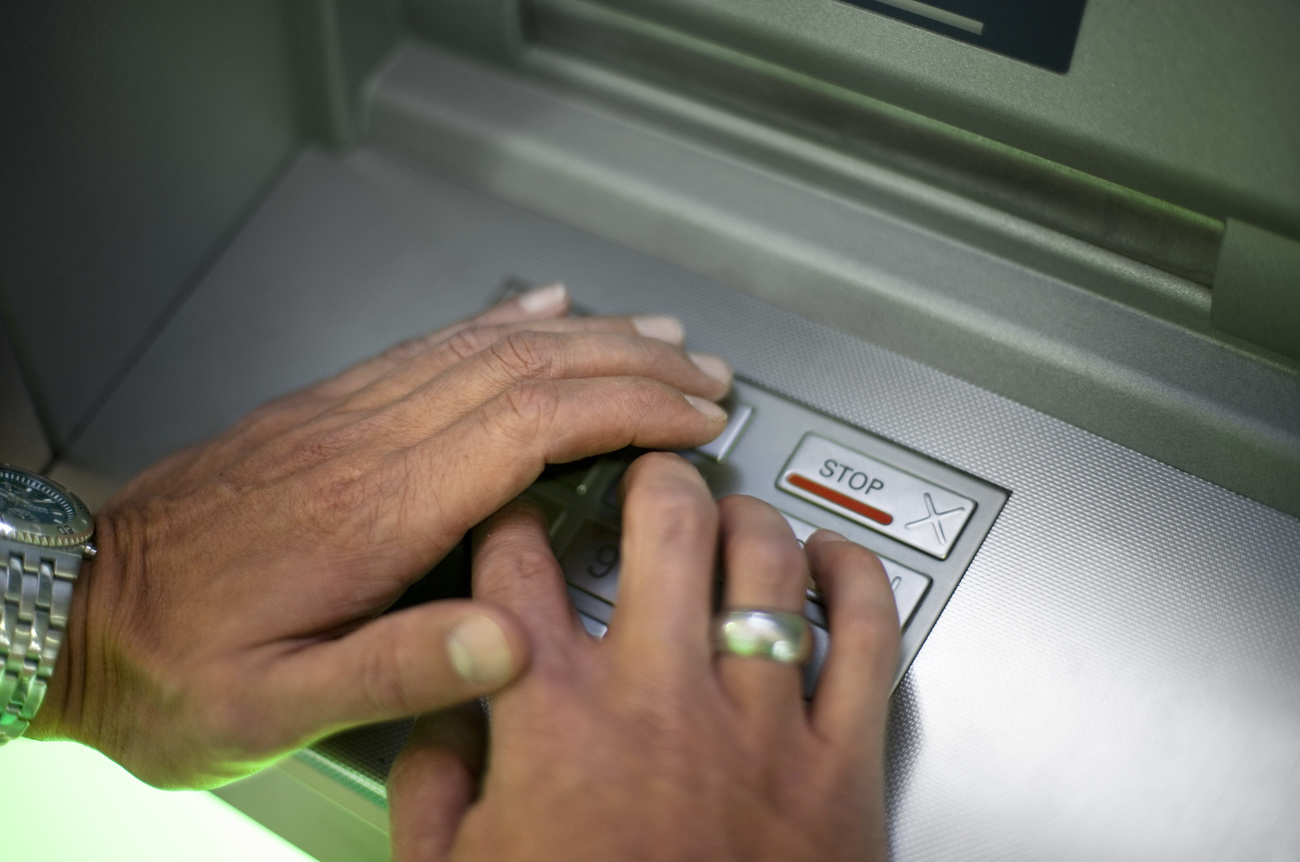
Are neobanks the answer for the Swiss Abroad?

Steep bank fees have long been a major bone of contention for the Swiss diaspora. New online banks are emerging that could provide a long-awaited alternative.
“I closed my account with Credit Suisse – they’re crazy with their CHF500 ($540) annual fee.” “I was paying CHF40 a month just because I live abroad. Thanks, but no thanks.”
Internet users do not mince their words when commenting on the subject of bank charges on SWI swissinfo.ch. And with good reason. Forced closures of accounts, exorbitant management fees – for years Swiss citizens resident in another country have felt mistreated by traditional banking institutions.
Now, new entities have appeared on the scene determined to reinvent a Swiss banking market that was resting on its laurels. Known as neobanks, they are by no means a panacea, but they could turn out to better meet the financial needs of Swiss citizens living abroad.
What exactly are neobanks?
The term refers to a new generation of digital banks that are often 100% mobile and are accessible from a smartphone app specific to each bank.
Regardless of their business model, whether purely digital or more traditional, all banks in Switzerland must meet the legal requirements laid down by the Swiss Financial Market Supervisory Authority (FINMA). Thus, neobanks must also “have sufficient capital and liquidity, be organised in such a way as to be able to manage risks, and offer the guarantee of irreproachable management”, according to FINMA spokesperson Vinzenz Mathys. They must also guarantee their customers’ deposits up to CHF100,000 per person.
However, a key terminological nuance exists between online banks and neobanks. The former are usually attached to existing traditional banks and offer generally equivalent services online. Neobanks, meanwhile, are payment facilitators that have received a banking or fintech licence from FINMA (where fintech refers to the use of technology to support or enable banking and financial services) and offer basic banking services.
This explains why the fees charged by neobanks are so much lower. “Certainly, many digital banks are distinguished by their transparent and, on average, lower fee models,” the Swiss Bankers Association confirmed. “However, they mostly provide only a few simple services, such as payments or a basic account overview.” Many do not offer credit or mortgage options. They have no actual branches and sometimes no real advisers, just a chatbot – a chat window driven by algorithms.
Pros and cons of neobanks
What’s more, neobanks are inherently virtual. All transactions are done via their smartphone application, which represents a hurdle for people who are less comfortable with new technologies. And because of their purely digital structure, there is also the risk that hacking or a bug could make the application unavailable.
Moreover, as with traditional banks, some countries are excluded from using their services, for legal and statutory reasons. This is because, in order to operate in other countries, banks must be licensed there and comply with local regulations – which entails risks and additional work. This is particularly true of the United States, which is home to the world’s third-highest number of expatriate Swiss.
Many neobanks also limit their activities to just a few countries, mainly within the eurozone.
Nonetheless, there are many advantages. The most obvious is not having to turn up in person to open an account. Other aspects, such as speedy implementation of payments and transfers, very low management fees, generally advantageous exchange rates and multi-currency accounts, are also bound to appeal to the Swiss diaspora.
More
Which neobanks are best for the Swiss abroad?
Online banks in Switzerland include CSX by Credit Suisse, Zak by Bank Cler and neon, which operates in collaboration with Lenzburg Mortgage Bank. However, in principle their services are not intended for Swiss nationals living abroad, as you have to be resident in Switzerland in order to subscribe to them.
That said, some people have found a way around this: by keeping their official address in Switzerland, for instance with a family member, to whom they give power of attorney.
Several foreign neobanks are active in the Swiss market and are accessible to non-residents. The best known are n26, from Germany, and Wise (formerly Transferwise) and Revolut, both from the United Kingdom.
However, as FINMA cautions: “Swiss clients subscribing to such services from abroad should be aware that the providers are not supervised by FINMA.” Vinzenz Mathys says this also means that in the event of a legal dispute the account owners will have to defend themselves in the country where the bank is headquartered.
As for Swiss neobanks, those most likely to meet the needs of the Swiss Abroad seem to be Dukascopy, Swissquote, Yapeal and Yuh.
Dukascopy is based in Meyrin, canton Geneva. According to its FINMA authorisation, it focuses on trading, wealth management and asset management. It offers multi-currency accounts to non-residents of Switzerland.
Swissquote falls in the same category as Dukascopy. Its head office is in Gland, canton Vaud. While its “core business is closely linked to trading”, it also provides other banking services.
Yapeal is based in Zurich. In 2020, it became the first Swiss company to receive a fintech banking licence. It targets Swiss expatriates and cross-border workers in particular.
Read our full article on Yapeal here:

More
Swiss expats thrown partial banking lifeline by digital disruptor
Yuh is the fruit of cooperation between PostFinance and Swissquote. According to its website, it “operates under the banking licence of Swissquote Bank SA and is thus subject to FINMA”.
To sum up:
| Dukascopy | Swissquote | Yapeal | Yuh | |
| FINMA banking or fintech licence | √ | √ | √ | √ |
| Free standard account (opening and maintenance) | √ | √ | √ | √ |
| Debit card | √ | √ | √ | √ |
| Credit card | √ | √ | X | X |
| Other banking products (savings, credit, mortgage…) | √ | √ | X | √ |
| Countries covered | “All except US and Iran” | “All except restricted countries” | Germany, France, Italy, Austria, Liechtenstein (extension to other countries planned for 2022) | Germany, France, Italy, Austria, Liechtenstein |
Which one to choose?
According to Nicole Töpperwien, managing director of SoliswissExternal link (the cooperative society solidarity fund for Swiss nationals abroad), “to find the right solution, you have to assess your needs accurately”.
She recommends asking yourself: “Do I need a credit card? Do I want to make payments or above all save or invest money? What about my mortgage? Where should my Swiss state pension go? Depending on the country and your needs, different options come into play.”
For people who have not yet moved abroad but are planning to do so, Soliswiss advises contacting the different banks as soon as possible. That said, “there will always be specific cases where no satisfactory solution can be found”, Töpperwien says. And then, you’ll just have to work out the best set-up as you go along.
Translated from French by Julia Bassam
This article was updated on October 8, 2025

More
The SWIplus app: your connection to Switzerland

In compliance with the JTI standards
More: SWI swissinfo.ch certified by the Journalism Trust Initiative

































You can find an overview of ongoing debates with our journalists here . Please join us!
If you want to start a conversation about a topic raised in this article or want to report factual errors, email us at english@swissinfo.ch.